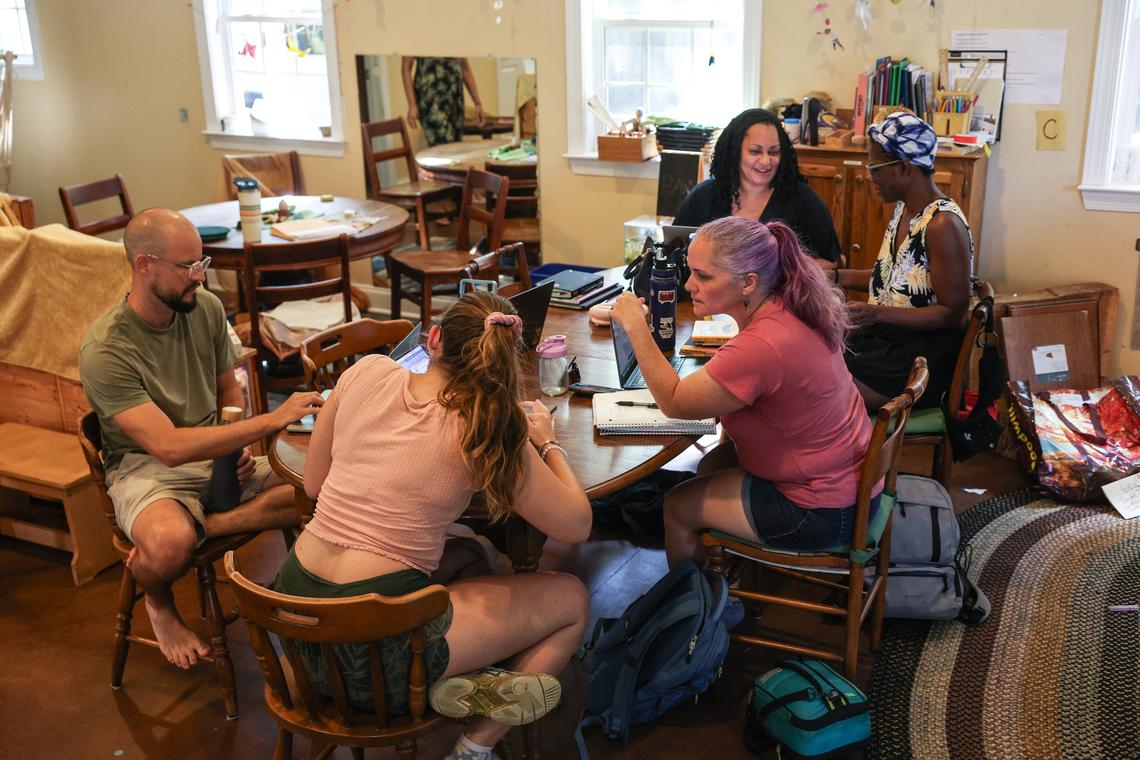
The Impact of School Vouchers on Education and Segregation in North Carolina
Nia Smith, a mother from Charlotte, found that public schools were not meeting her son's needs. Her child has special needs, and she wanted a smaller school with a strong sense of community and specialized instruction. However, the cost of private education was prohibitive for her family. With the help of an Opportunity Scholarship, she was able to enroll her son at ALC Mosaic, a secular private school in east Charlotte.
North Carolina introduced state-funded school vouchers in 2014, but there was an income cap until last year. Smith was in the second income tier and qualified for the scholarship before, but funding was limited. After the state expanded the program, more families like hers gained access to private education options.
Proponents argue that voucher expansion provides essential choices for families, especially those with children who have complex needs. They believe it allows parents to engage directly with school directors and make informed decisions about their children’s education. However, critics claim that such programs drain resources from already underfunded public schools. Research also suggests that students leaving public schools for private institutions may contribute to increased school segregation.
ALC Mosaic uses a sliding scale tuition model, allowing families to pay what they can afford. For some, this means as little as $800 per year. Director of Operations Tomis Parker emphasized that the school’s mission is to create a diverse and accessible community. “We believe education should be a public good and accessible to people,” he said.
This approach is rare among private schools, many of which charge tuition far exceeding the amount provided by even the largest school vouchers in North Carolina. While the Opportunity Scholarship program now allows families of all income levels to access funds, those with the lowest incomes still receive priority.
The program saw significant growth after the income cap was lifted. In the 2024-25 school year, over 80,000 students received scholarships, with 42% coming from families earning more than $115,000 annually. In Mecklenburg County, 58% of recipients came from households earning over $115,000, and 28% from households earning over $259,700.
Scholarship amounts vary based on income, ranging from $7,468 for the lowest-income families to $3,360 for the highest. Mecklenburg County received $39 million in vouchers during the 2024-25 school year, three times the previous year’s amount.
Despite the program’s expansion, data shows that school demographics have not changed significantly. Most new voucher recipients were already enrolled in private schools. Researchers warn that continued exodus from public schools could worsen segregation. Studies show white students are overrepresented in private and charter schools, with 74% of private school students in North Carolina being white, compared to 45% of public school students.
Diversity in schools is not just a moral issue—it has academic benefits. Integrated schools often see better performance on standardized tests and improved social outcomes. Charles Clotfelter, a former Duke University professor, noted that segregated schools hinder students’ ability to interact in a diverse society.
School segregation is more pronounced in urban areas, where private and charter schools offer more options. Urban districts like Charlotte-Mecklenburg Schools (CMS) have used magnet programs to promote diversity. However, private schools remain disproportionately white and high-income.
Clotfelter predicts that the universal voucher program will increase segregation, as more families choose private schools. He also pointed out that while the program has expanded access, it has not necessarily addressed broader issues of underfunding in public education.
Parker from ALC Mosaic believes that voucher expansion can increase accessibility, but he acknowledges that many private schools do not adjust tuition to match the maximum scholarship amount. For example, Covenant Day School charges between $14,290 and $21,590 per year, while CDS received $3.3 million in vouchers during the 2024-25 school year.
He argues that while private schools should not be forced to lower tuition, more should consider making themselves accessible to low-income families. At the same time, he emphasizes that public schools face systemic challenges, including serving students with disabilities without adequate support.
Mike Long of Parents for Education Freedom in North Carolina believes that educational dollars should follow the child, not the system. Elizabeth Paul of the NC Public School Forum argues that public schools need more resources to meet students' needs, and that diverting funds to private schools risks leaving many students behind.
Ultimately, the debate over school vouchers reflects deeper issues of equity, funding, and the future of education in North Carolina.